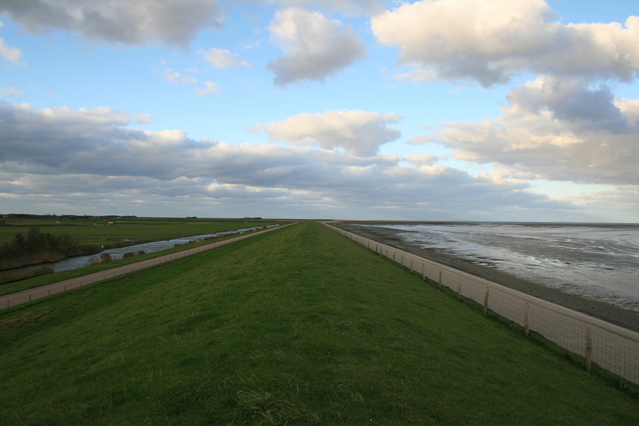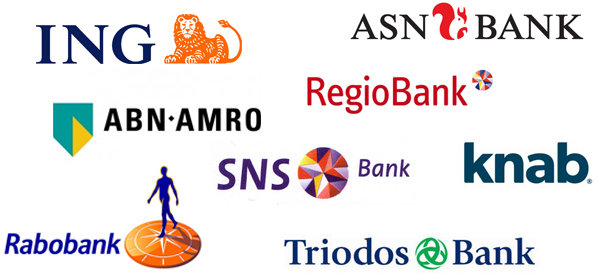What you need to know when moving to the Netherlands
The Netherlands is a popular destination for expats and most people who move there can easily adjust to the Dutch lifestyle. Expats are so welcome here. Read all you need to know when planning a long stay in The Netherlands.

Living in the Netherlands means living in the gateway to Europe, thanks to the network of rivers connecting the country to Belgium, France and Germany. With a population of approximately 16.6 million, it’s a very densely populated country and one of the best places in Europe to live.
The Netherlands is extremely flat and no less than 27 percent of the surface is land reclaimed from the water. This has led to the immense proliferation of dikes throughout the country, and that’s what the Netherlands is now famous for globally. But don't forget the wooden shoes and it's tulips.
The Netherlands has a rich cultural heritage and was home to some of the world’s most famous artists such as Rembrandt, Vermeer, Van Gogh and Mondriaan.

The Netherlands as an expat destination
The Netherlands is a popular destination for expats and most people who move there can easily adjust to the Dutch lifestyle. Expats are so welcome here that, if they have a residence permit to live in the Netherlands, they can vote in local elections. As can be expected, the capital Amsterdam is the most popular and the highest-rated city to live in amongst expats, Utrecht is in second place and Amstelveen in third place, according to researchers.
The biggest challenge that expats face when they live in the Netherlands is the bureaucracy. For almost everything, guidelines and rules and expats often find it difficult to endure this administrative hassle and the long waiting times for what appears to be the basic tasks.
Living in The Netherlands as an expat - things to know
To live as an expat in the Netherlands, there are a lot of important things you should know about:
- The cost of living in the Netherlands
- Rent or buy a property?
- Finding a property
- Language
- Climate
- Job and career opportunities
- Utilities in the Netherlands
- Opening a bank account in the Netherlands
- Immigration
- Moving your belongings
- Health insurance and social benefits
- Paying taxes in the Netherlands
- Education and studying in the Netherlands
- Driving licence in the Netherlands
- Buying a car in the Netherlands
- Finding childcare in the Netherlands
- Required insurance in the Netherlands
- Retirement and Dutch pensions
- Dutch culture and social life
The cost of living in the Netherlands
The cost of living in the Netherlands has increased steadily in recent years but it’s still lower than in many other European countries. In Mercer’s 2012 Cost of Living survey, Amsterdam ranked 57th on the list of most expensive cities in the world to live in.
The high population density in the Netherlands affects real estate prices in the country. Foreigners are only eligible for properties in the so-called ‘free sector’ (private housing as opposed to social housing) and this means paying high prices for small apartments. Tax rates in the country are also high. However, it’s not all doom and gloom. Groceries remain relatively cheap because of the increase of budget supermarkets. Medical services are also accessible for a reasonable price.
If you’re considering moving to Amsterdam, have a look at the website of the local Amsterdam municipality IAmsterdam. They can provide you with tips about housing, finding schools, insurance, finding work and so on.

Rent or buy a property as a foreigner?
Buying a property can take several months, that’s why renting a property is recommended if you have just moved to the Netherlands or don’t intend to stay in the country longer than three years. Approximately 40 percent of the Dutch lives in a rented property but most of these properties are social housing. Renting privately can be expensive and the application process isn’t always easy and straightforward. To avoid issues, it’s advisable to use an experienced intermediary. You could opt for a serviced apartment if you’re looking for short-term accommodation (longer than one week)
There are no restrictions for foreigners looking to buy real estate in, whether you’re living in the country or not. There are tax benefits for homeowners and mortgage payments are generally lower than rental prices but transaction costs are high—approximately 6 percent of the purchase price.
Try to find accommodation for 500 euros or less. That’s probably the cheapest you’ll be able to find.
Housing rental websites for expats:
Finding a property
When moving to the Netherlands it’s important to register yourself at the town hall in the municipality where you’re living as soon as possible. You’ll need a fixed address for this. If you don’t have one when you arrive, then you should register as soon as you have one. It’s almost impossible to find accommodation without speaking Dutch fluently or without having a job.
If you’ve just arrived in the Netherlands, it’s unlikely for you to be fluent or have a job. The only way to find accommodation is to respond to everything on Kamernet. Once you’ve done that, you’ll need a bit of luck. Many people respond to ads but won’t hear anything back in 99 percent of all cases. If you have friends in the Netherlands, they can be invaluable. Ask them for help, maybe they know someone looking for someone to live with or they can enquire for you if someone is looking for someone to live with. Even if they can only offer advice and information, it’s still incredibly valuable.
Job and career opportunities
As a foreigner, it can be very challenging to find a job in the Netherlands. Most jobs require good Dutch language skills and there are restrictions on the hiring of non-EU/EEA citizens. It’s easier to find a job for those living in the Netherlands and looking for work in retail, catering or language education.
The services sector is an important source of employment in the Netherlands is and the majority of jobs are in areas such as business services, health and welfare, transport and communications.
How to find work in the Netherlands?
There are numerous opportunities for expats who have moved to the Netherlands to find a job. Demand in the areas of finance, IT or engineering is high, especially for skilled employees. Several international and multinational companies are based in the Netherlands and there are recruitment agencies that focus on expats.
Employees from the EU/EEA can work in the Netherlands without a visa but people from outside the EU/EEA need a residence permit and employer must apply for an employment permit. Those who require these permits must inform the Dutch immigration service (IND) if they change jobs.
There are countless job boards and recruitment agencies to find a job in the Netherlands, and you can find job ads in Dutch newspapers or attend job fairs. The average Dutch working week is 36-40 hours. The minimum wage increases annually up to the age of 23. There are also a number of labour laws to protect Dutch employees. Becoming self-employed or starting a business in the Netherlands are also popular options among expats.
Utilities in the Netherlands
When buying or renting a property, it’s quite normal to start a new contract with the people who give you heat and light—also known as the energy company. For many foreigners distinguishing all offers and prices can be a daunting task.
If you rent a property in the Netherlands, it’s likely that the costs of utilities (water, electricity and gas) and possibly also communication costs (landline and internet) are included in your monthly rent. If it’s not included or if you’ve bought a property, you’ll have to start a new contract yourself.
The water supplier depends on where you live. Electricity and gas suppliers are both privatized and you’ll be able to choose from a range of different companies. Regulators ensure that tariffs are reasonably priced. For more information, have a look at a guide for utility connections in the Netherlands.
In many Dutch homes the telephone, TV and Internet connections are part of one package. Internet speeds in the Netherlands are some of the fastest in Europe. You can easily compare the different prices and packages on gaslicht.com.
Mobile phone providers
- KPN - www.kpn.com
- Vodafone - www.vodafone.nl
- Telfort - www.telfort.nl
- T-Mobile - www.t-mobile.nl
- Tele2 - www.tele2.nl
- Expat Mobile https://expatmobile.nl (no Dutch bank account needed, and can deliver SIM internationally)
- Simyo - www.simyo.nl (prepaid sim card)
- Lebara - https://mobile.lebara.com/nl/en/
- Lyca mobile - http://www.lycamobile.nl/nl/
- AH Mobiel - http://www.ah.nl/mobiel (pay as you go only)
Opening a bank account in the Netherlands
Paying your rent or paying for your visa (see the next section) can be done by opening a Dutch bank account and transferring money to it. Opening a Dutch bank account can be quite a challenge and unfortunately, the banks with the best social and ethical policies have the worst services in English. An exception to the rule is Bunq. This new bank young and fast, and it has all the digital services you would expect from a modern bank.

Transferring money to your brand new bank account is a lot easier. You can use the International Money Transfer website to transfer money from your foreign currency to euros. They have a page dedicated to the best way to transfer money to the Netherlands.
Another way to transfer money is through TransferWise. They combine low fees with an easy-to-use website to transfer money to family and friends abroad (or to yourself or to a Russian lover). Their exchange rates are some of the best available online but their service isn’t for everyone. TransferWise will only process online payments to bank accounts in 60 countries. Visit their website and use their service if it’s available for your country. It makes moving to the Netherlands a lot easier (and cheaper).
Most banks have employees who speak English and there are also financial service providers with specific services for expat customers. To open a Dutch bank account you’ll need a valid identification document (and a residence permit, if applicable), your ‘burgerservicenummer’ (BSN) and proof of address. They can also ask for proof of income, through a payslip for example.
Most Dutch banks offer online banking. Credit cards and international transfers are also available but they can be quite expensive.
Immigration
EU/EEA residents (and their immediate family members) can enter the Netherlands with a visa and they can stay in the country visa-free, except for those coming from Croatia because some restrictions apply for living and working in the Netherlands However, every EU/EEA resident staying in the country for more than four months still needs to register with the local municipality and apply for a burgerservicenummer (BSN).
Those moving to the Netherlands from outside the EU/EEA will have to apply for a long-term visa (MVV) to enter the country and will have to apply for a residence permit to stay in the country for more than three months. You need an MVV to enter the Netherlands and you can apply for a residence permit at the local immigration service (IND) within two weeks of your arrival.
For more information on all aspects of immigration to the Netherlands, have a look at this comprehensive guide to Dutch visas and permits from our partner Expatica.
Depending on your circumstances, you’ll most likely need the following to register at the town hall of your municipality:
- Your passport
- Your original birth certificate, legalised in your country of origin
- Copies of your visa, depending on which one you have and which phase you’re in
- Copies of a return ticket to your country of origin, or a bank statement to prove you have sufficient funds to sustain yourself, usually around 2000 – 3000 euros.
- Copies of your rental contract signed by you and the main tenant. Or, if the main tenant attends in person, only their passport or identity card.
Once the municipality registers you, you’ll receive a document with your registered address and the much talked about BSN. In the Netherlands, the BSN is required to live a normal life. You’ll need the BSN to be able to work, to open a bank account and to do everything that Dutch citizens can do.
Moving your belongings
You don’t have to declare your goods to Dutch customs if you move to the Netherlands from another EU country, as long as you don’t include anything from the list of exemptions. If you arrive from a non-EU country, you must declare your goods to Dutch customs but you may be eligible for exemption from import duties if you move to the Netherlands to live and work.
The costs of moving to the Netherlands depends on how you move your belongings, you can move them by air or by sea. If you move from mainland Europe, you can move them by road or train. Another option is the use of a professional removal company. If you need help with your move, Expatica has created a list with removal companies in the Netherlands, including Holland Movers, specialised in carefree international removals.
Pets can be brought into the Netherlands, but there are strict rules around health and transport. Read about it here or here.
Here is a great overview of what you need to know when importing a car to the Netherlands. Here is an article if you'd rather buy a car in the Netherlands.
Health insurance and social benefits
Both health insurance and public insurance schemes for social benefits are mandatory for Dutch citizens. Most long-term residents of the Netherlands are eligible for public health insurance. Private health insurance is available to those who don’t have access to public health insurance or to those who require extra cover. Most foreigners must take out public health insurance within four months of receiving their residence permit. People from EU/EEA countries who are in the Netherlands for a short while can use their European Health Insurance Card (EHIC), but they must convert their EHIC to a Dutch health insurance if they stay longer than one year.
The costs of a Dutch health insurance are high compared to other European countries, with 6.75 percent of their salary covering basic medical care and 9.65 percent covering long-term medical care and nursing but the Dutch healthcare system is of high quality and it’s ranked the best in Europe.
Contributing to social security is mandatory for everyone, regardless of the employee’s status—although there are exceptions. You can find more information about these exceptions on the website of the Dutch Social Security Bank (SVB). The Dutch social security system is one of the most extensive in Europe and covers child benefit, maternity and paternity leave, unemployment benefit, long-term care, sick leave and disability benefit.

Paying taxes in the Netherlands
For foreigners and locals alike, the Dutch tax system is complicated and tax rates can vary considerably, depending on your personal circumstances. Everyone living or working in the Netherlands is considered a ‘resident taxpayer’ and will have to pay taxes on their worldwide assets.
If you’re a taxpayer in the Netherlands, you’ll receive a burgerservicenummer (BSN) and you must file a tax return annually in April. You can file this online. Most tax is collected through income tax on income, employment and home ownership (between 8.9 and 52 percent), capital gains tax (25 percent) and tax on savings and investments (30 percent). There are various deductions and surcharges, including a reward of 30% for foreign employees with specific skills. An employer may provide an employee with 30% of wages, tax-free, for moving to the Netherlands. This facility is known as the 30%-facility.
Other common taxes in the Netherlands are VAT (standard rate of 21%), property tax (between 0.1 and 0.3 percent of the value of the property), inheritance tax and corporation tax (20 to 25 percent, depending on profits).
Education and studying in the Netherlands
In the Netherlands, full-time education is mandatory for children from the age of five for twelve years. Part-time education is mandatory from the age of sixteen to the age of eighteen. Although primary education is only compulsory from the age of five, most Dutch children start their primary education the day after their fourth birthday. Free primary and secondary education is availably to everyone and there are private (special) schools that are attended by two-thirds of all children. These schools are also free but they may ask for a contribution from the parents.
Every city or municipality in the Netherlands has their own and enrolment procedure. If you’re moving to the Netherlands with your family, it’s recommended to familiarise yourself with these procedures. You can find information about schools, including performance tables, online at www.scholenopdekaart.nl.
Education in the Netherlands is generally of high quality, although the quality between schools can differ considerably. All pupils in the Netherlands start learning English at the age of ten but some schools start teaching English to pupils at a younger age.

International schools
If you’re moving to the Netherlands, you choose to enrol your child in one of the many international schools. This is an option if you’re staying in the country for a short time or if you have an older child who doesn’t speak Dutch. This option will depend on your financial situation, although some employers will give you an allowance as part of the relocation package and this allowance will be tax-free.
Website: http://www.dutchinternationalschools.nl/
Special needs schools
There are special schools for students with severe learning difficulties. If your child has learning difficulties, you can choose enrol them in a special school or in a regular school. Every school is required by law to meet the needs of all pupils.
University education
Dutch universities offer a range of bachelor’s degrees, master’s degrees and doctoral degrees. International students must have their foreign qualifications accredited by the Dutch authorities. University fees depend on your age, your nationality and the subject.
Language schools
Although the majority of Dutch people speak English, you’ll integrate better if you speak Dutch. There are numerous language schools and courses if you want to learn Dutch or improve your Dutch. Courses are available for everyone—from beginners to advanced and there are courses available online and through Skype.
Driving licence in the Netherlands
Rules around driving are quite strict in the Netherlands. You can’t drive in a car registered abroad and you must exchange your foreign driving licence for a Dutch driving licence within 185 days of arriving in the country. If you can’t exchange your driving licence because you’re from outside the EU/EEA, you’ll have to take a Dutch theory and driving test.
All foreign cars must be registered with the RDW (Rijksdienst voor het Wegverkeer) and the registration documents must be kept in the car at all times.
Buying a car in the Netherlands
It can be quite complicated to buy a car with a Dutch number plate (registration). Most car dealers only have one goal: selling you a car. You’ll also have to deal with a language barrier (not all car dealers speak English) and haggling is common. Fortunately there’s there is BYNCO.com. This website for used cars is designed for expats. Prices are fair and transparent, the car is delivered within 48 hours and you can test drive the car for 14 days with no strings attached. They’ll refund you in full if you don’t like the car. You can simply order on the site, even if you have a foreign driving licence. Bynco makes buying a car in the Netherlands easy for expats.
Finding childcare in the Netherlands
If you’ve moved to the Netherlands with young children, you’ll have a number of options available for childcare:
- Nursery or kindergarten: public childcare for children aged 0-4 (generally available from 6am to 8pm).
- Private childcare: this includes international nurseries and preschool facilities.
- Preschool / playgroups: activities and games for children ages 2-4. This is more suitable for part-time childcare.
- Employers: some employers offer childcare.
- After-school care: for children aged up to 12.
- Personal au pair: you can hire an au pair in the Netherlands although there are restrictions to the work they can carry out and the amount of hours they can work.
Parents who live or work in the Netherlands are entitled to child benefit for children aged under 18 and to childcare allowance for children aged under 12.
Required insurance in the Netherlands
Aside from the mandatory health insurance, those who own their own business or start their own business must take out specific insurance policies. Home insurance is often also taken out, as is a life insurance policy and a liability insurance (taken out by 95 percent of the Dutch population). Liability insurance is mandatory if you own a car. More information can be found in our partner's guide to insurance in the Netherlands.

Retirement and Dutch pensions
The Netherlands ranks 9th as the best place to retire, according to the Nataxis Global Retirement Index and the Dutch pension system ranks second in the world, according to the Mercer Global Pension index. This makes the Netherlands an interesting destination for expats who are close to retirement.
The retirement age in the Netherlands is 65 but this will gradually increase to 67 in 2022. Those who live and work in the Netherlands qualify for a Dutch state pension. If you move from another EU country, don’t forget that EU/EEA citizens are also entitled to state pensions earned in other member states. Like many other European countries, the Netherlands has a pension system based on three pillars: the compulsory state pensions, the workplace pensions and private pensions.
Dutch culture and social life
Despite a good quality of life, the cost of living in the Netherlands is lower than in many other Western European countries. Amsterdam, however, is more expensive than other places. That said, of the many activities the capital has to offer, there are plenty of things you can do for free. Dutch culture is known for being relaxed, liberal and multicultural. The nightlife of Amsterdam is one of the things the country is famous for but there are many other things for you to do and places you can visit in the Netherlands, for example a fine selection of Dutch museums.
There are plenty of support groups and clubs based on nationality, lifestyle or profession to help foreigners once they’ve moved to the Netherlands. You can also join (or start your own) meeting group to find like-minded people. If you would like to settle down in the country, learn more about the Netherlands or want to get familiar with local customs, you can immerse yourself in Dutch culture or read more about the Netherlands. Try Dutch cuisine to get a real taste of the country.
The Netherlands is a predominantly Christian country and, like in many other European countries, Christmas revolves around family, food and some unique local traditions. Dutch Christmas markets are an annual recurring festivity. Christmas Day, Boxing Day and New Year’s Day are national holidays. We have compiled a list of national holidays in the Netherlands, plus the details of other important days.
We hope you enjoy your stay in The Netherlands!



